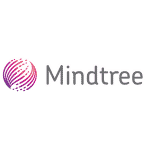Introduction: Popular Cloud Security Certifications in 2024
Cloud Computing is a most talked about topic among developers and computer science enthusiasts, with their annual salaries rising higher every day with more job vacancies coming in their footsteps. As most organizations, be it IT or even non-IT are moving towards Cloud Computing, it is the responsibility of the Cloud Service Provider (CSP) to keep the data, processes, applications, etc. safe, secure, and intact while also promising reliable services.
As per ‘Burning Glass,’ there can be a growth of demand for cloud security skills by 115% between 2020 to 2050 by making this domain a profitable career choice and a notable perspective for growth.
Now the CSPs are in a constant search for individuals with good command over cloud as well as security and due to this, the strive to get the best cloud security jobs have been hovering over their minds, with individuals upskilling themselves and looking for advanced cloud security certifications.
What is Cloud Security?
Now the question that arrives in one’s mind is what is Cloud Security, it is a compilation of technology and procedures for addressing the internal and external issues of business security.
Now after understanding the basic definition of Cloud Security, another question that pops up is when and how a company uses cloud security.
When a company moves towards digital transformation, it needs cloud security as it often implements new strategies besides the incorporation of cloud-based tools. Any individual interested in beginning or facilitating your career in this domain then attaining a cloud security certification may help you learn analytical skills and verify those skills to recruiters and hiring managers.
Cloud Security Certifications
Earning a cloud security certification validates your knowledge and skills in securing cloud environments. These certifications demonstrate your competency to employers and can significantly boost your resume in the competitive cloud security job market.
There are many different cloud security certifications available, each with its own focus and requirements. Choosing the right cloud security certification for you depends on your experience level, career goals, and the specific cloud platform you want to work with.
In addition to cloud security certifications, cloud security software can also play an important role in protecting your data and applications in the cloud. Cloud security software can help you with tasks such as identity and access management, data encryption, security monitoring, and threat detection.
Cloud security certifications are a valuable asset for anyone looking to advance their career in cloud security. They validate your knowledge and skills in securing cloud environments, making you a more attractive candidate to potential employers. With so many different cloud security certifications available, it can be overwhelming to decide which one is right for you.
Here is a list of 7 popular Cloud Security Certification in 2024
This article will explore 7 popular cloud security certifications in 2024, the types of companies that hire for these certifications, and how to choose the right certification for you.
By the end of this blog post, you will have a better understanding of cloud security certifications and how they can help you advance your career in cloud security.
1. Google professional Cloud Security Engineer
The Professional Cloud Security Engineer Certification by Google validates your ability to design, implement, and maintain secure structures in Google Cloud. Earning this certification demonstrates your expertise in securing GCP environments and is a valuable asset for aspiring Google Cloud security specialists. It can open doors to roles like Cloud Security Engineer, Security Architect, and Cloud Security Consultant.
As a certified cloud security engineer, you’ll be responsible for securing cloud applications, networks, and infrastructure. While there are no formal prerequisites, a strong understanding of GCP services and hands-on experience with security controls, compliance, and access management are recommended.
This certification enhances your cloud security expertise and strengthens your credibility in the field. It can also support your career advancement goals and is valued by organizations using GCP for their cloud infrastructure.
2. Certified Cloud Security Professional- CCSP
One of the finest cloud security certifications because of the significance it holds in the industry. This certification validates that you have updated your technical knowledge and you can manage, design, and secure data as well as applications and structures in the cloud by getting into the best practices as needed by cyber security professionals.
The roles and responsibilities included for CCSPs are ensuring the security, privacy, and compliance of cloud services. These all include managing cloud security policies, procedures, and technologies.
In this specific Certification, the candidate must have at least five years of collective, paid work experience in IT, of which three years must mandatorily be in information security and one year in one of the six domains of CCSP’s Common Body of Knowledge.
Obtaining the CCSP certificate exhibits a high-level expertise in cloud security and is renowned internationally. It gives a boost to your career opportunities, increases earning potential, and improves one’s knowledge and skills in the domain.
3. AWS Certified Security
This certification is perfect for you if you are willing to work with Amazon Web Services. The certification is considered for security professionals, solution architects, or any person responsible for designing, implementing, and managing security controls with AWS.
The roles and responsibilities included for an AWS Certified Security professional include ensuring the security, compliance, and flexibility of AWS workloads. These play a significant role in designing and implementing security measures to keep safe the AWS data, resources, and applications.
While there are not many of the prerequisites needed for this certification, AWS recommends that candidates may have at least five years of experience in IT security which also includes two years of hands-on experience in securing AWS workloads. Grabbing this certification adds to a high level of expertise in securing AWS environments.
4. Microsoft Certified Azure Security Engineer Associate
AWS in the cloud market is chased by Microsoft Azure. If a candidate is willing to work with Azure, then a Microsoft Certified Azure Security Engineer Associate is exemplary. It certifies your skills in implementing Azure security controls. Obtaining this certificate means that you can identify and remediate exposures, implement protection against threats, and acknowledge escalations in security incidents, among other things.
Holders of the certificate are bound by some roles and responsibilities, such as implementing security controls, threat protection, and compliance measures for Azure resources. It plays a major role in securing Azure workloads and data. Candidates are just expected to have a basic understanding of Azure services, Azure Active Directory, and basic security concepts, with no other prerequisites.
The gains from the certifications are such that they show one’s ability to design, implement, and manage security solutions for Azure’s structure. It also gives a wide horizon of career opportunities and upgrades skills in the rapidly growing field of cloud security.
5. Certificate of Cloud Security Knowledge (CCSK)
The Cloud Security Alliance offers it and is also popular as a vendor-neutral certificate. It ensures a candidate’s knowledge of application security, data encryption, and cloud incident response. The CCSK assesses a candidate’s knowledge and aptitude in understanding cloud computing environments.
Roles and Responsibilities: It is designated for individuals who work with cloud technologies, which includes cloud architects, security professionals, IT managers, and compliance personnel.
Prerequisites: Only a basic foundational understanding of cloud computing is required; no other prerequisites are required.
Benefits: It exemplifies a strong understanding of cloud security concepts and practices of the candidate.
6. Google Professional Cloud Architect
This distinguished credential is offered by Google Cloud. It ensures a candidate’s expertise in designing scalable, secure, and highly available cloud solutions on the Google Cloud Platform (GCP). This process for this certification can be easily completed and does not require much experience, while it is helpful for IT professionals who want to become solution architects.
Roles and Responsibilities: Individuals with this specific certification are responsible for translating business requirements into secure, scalable, and reliable cloud solutions on GCP.
Prerequisites: Only basic experience with GCP services and cloud architecture and sturdy knowledge of enterprise technology solutions are needed; no other prerequisites are needed.
Obtaining: The benefits of acquiring this certification are that it will highlight the candidate’s proficiency in architecting cloud computing.
7. CompTIA Cloud+
A vendor-neutral certification that approves the candidate’s ability to design and manage a secure cloud structure. Though it focuses on general cloud certification, it also has an extensive focus on cloud security. IT professionals who work with cloud technologies and solutions or focus on the planning for deployment, management, and troubleshooting of cloud infrastructure are ideally designated for this certification.
Roles and Responsibilities: Individuals intended for this certification have job roles related to cloud technologies, such as cloud administrators, cloud architects, system administrators, and network administrators.
Prerequisites: No strict prerequisites are needed for this certification, though it is recommended that applicants for this certification have a minimum of 2-3 years of work experience in IT networking.
Obtainments: After earning the certification, it gives approval to their knowledge and skills in cloud technologies.
Additional Cloud Security Certifications to Consider
Beyond the seven certifications listed earlier, here are a few other well-respected options to explore:
(ISC)² Certified Cloud Security Professional (CCSP)
This industry-recognized credential goes beyond general cybersecurity (CISSP) and focuses specifically on cloud security architecture, design, and operations. It demonstrates your ability to secure cloud environments across various platforms.
(ISC)² Cybersecurity Architect Professional (CASP)
This certification is ideal if you’re involved in designing secure cloud architectures. It validates your expertise in building secure IT infrastructure, including cloud deployments. With cloud adoption on the rise, CASP proves you can design robust security from the ground up.
Certified Information Systems Auditor (CISA)
While not strictly cloud-focused, CISA equips you with essential cloud security compliance knowledge. As cloud regulations evolve, organizations need professionals who can audit and assess cloud security posture. Combine CISA with a cloud-specific certification like AWS Certified Security – Specialty for a powerful skillset.
Remember: Cloud security certifications are valuable tools to validate your knowledge and skills, but they are not the only factor employers consider. Real-world experience and a strong understanding of security best practices are also crucial.
Conclusion
There is growth and demand in the domain of cloud security in the coming years; securing a certificate is a way of beginning and advancing your career. In the above article, we have listed the 7 cloud security certifications in 2024. Earning them may cost a bunch of money, but it will be a long-term investment and give you a boost in your career. Keep moving towards your goal and make decisions wisely!












No comment yet, add your voice below!